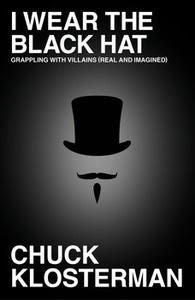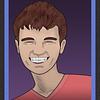Take a photo of a barcode or cover
dark
lighthearted
reflective
fast-paced
I find myself having a hard time deciding what I thought about this book.
On the one hand, the writing is self-indulgent to the point of being quite annoying. Several of the essays are half-thoughts that sometimes end with a conclusion that the author should have thought about it some more. It's filled with references that don't elucidate anything and seem to only exist to say, "Hey, I know about this mostly-unrelated thing." At one point he spends 8 pages detailing the bands he hated through his childhood and early adulthood, that kind of thing.
On the other hand, scattered among the essays are a variety of observations about cultural attitudes and behaviors that I found quite interesting. As an example, he observes, correctly I think, that the major cultural transition in the 80s and 90s was a shift in control over what was acceptable in public discussion from the political right (sex and profanity are unacceptable, joking about minorities, women, and gay people is okay) to the left (sex and profanity are okay, joking about minorities, women, and gay people is unacceptable). That's a worthy topic to explore, but he doesn't really explore it, most of the chapter is about how Andrew Dice Clay wasn't very funny and ended up going down in history as a bad guy (though I think he overestimates how much Andrew Dice Clay has gone down in history, as opposed to just being forgotten).
So overall, I think I'd marginally recommend the book, but know that you're reading a lot of words for only a few real gems. Those gems are pretty good, though.
On the one hand, the writing is self-indulgent to the point of being quite annoying. Several of the essays are half-thoughts that sometimes end with a conclusion that the author should have thought about it some more. It's filled with references that don't elucidate anything and seem to only exist to say, "Hey, I know about this mostly-unrelated thing." At one point he spends 8 pages detailing the bands he hated through his childhood and early adulthood, that kind of thing.
On the other hand, scattered among the essays are a variety of observations about cultural attitudes and behaviors that I found quite interesting. As an example, he observes, correctly I think, that the major cultural transition in the 80s and 90s was a shift in control over what was acceptable in public discussion from the political right (sex and profanity are unacceptable, joking about minorities, women, and gay people is okay) to the left (sex and profanity are okay, joking about minorities, women, and gay people is unacceptable). That's a worthy topic to explore, but he doesn't really explore it, most of the chapter is about how Andrew Dice Clay wasn't very funny and ended up going down in history as a bad guy (though I think he overestimates how much Andrew Dice Clay has gone down in history, as opposed to just being forgotten).
So overall, I think I'd marginally recommend the book, but know that you're reading a lot of words for only a few real gems. Those gems are pretty good, though.
emotional
reflective
medium-paced
Really enjoyed this book. It Klostermans's best since his Fargo Rock City and Sex Drugs and CC Puffs days. He does a great job of over- analyzing modern day villains in just the way you'd expect from CK. I recommend.
I enjoy Chuck Klosterman so I wanted to give this book more stars. Really I should. Maybe I will. Anyhow, the negative stars should be for me, the reader, since I didn't know a handful of his references.
Here's the list who/what the book referenced: Niccolò Machiavelli, the Penn State child sex abuse scandal, the Eagles song 'Take It Easy', Keith Richards, D. B. Cooper, Morris Day, Muhammad Ali, Bernhard Goetz, Batman, Andrew Dice Clay, N.W.A, the Oakland Raiders, Bill Clinton, Monica Lewinsky, Kenneth Starr, Linda Tripp, Hillary Clinton, Perez Hilton, Kim Dotcom, Julian Assange, Fred Durst, Chevy Chase, Howard Cosell, Aleister Crowley, O.J. Simpson, Kareem Abdul-Jabbar, Adolf Hitler, Bob Dylan's song 'With God on Our Side', Rick Helling, and others.
Here's the list who/what the book referenced: Niccolò Machiavelli, the Penn State child sex abuse scandal, the Eagles song 'Take It Easy', Keith Richards, D. B. Cooper, Morris Day, Muhammad Ali, Bernhard Goetz, Batman, Andrew Dice Clay, N.W.A, the Oakland Raiders, Bill Clinton, Monica Lewinsky, Kenneth Starr, Linda Tripp, Hillary Clinton, Perez Hilton, Kim Dotcom, Julian Assange, Fred Durst, Chevy Chase, Howard Cosell, Aleister Crowley, O.J. Simpson, Kareem Abdul-Jabbar, Adolf Hitler, Bob Dylan's song 'With God on Our Side', Rick Helling, and others.
Some of the ideas are a little reaching but on the whole, it's an interesting concept to think about: why do we see some people as more or less of a villain than others.
Another great book by Klosterman. A quick and entertaining read full of interesting tidbits. Love the guy!
His thesis is flawed, which is that the villain is the one who knows the most but cares the least. Almost all the figures he puts up as villains are merely unpopular or maybe annoying at worst, but do not come close to rising to the level of villainy. Of the 2 examples cited that are villains, they don't meet his stated definition. Also he has the unpleasant habit of expressing his opinions as uncontested generally accepted beliefs. In short this book was full of unrealized possibilities. Why can evil be seductive? Why are we drawn to the antihero? Instead we get endless droning about the band the Eagles or Andrew Dice Clay -- irritating maybe, villains? No way.



